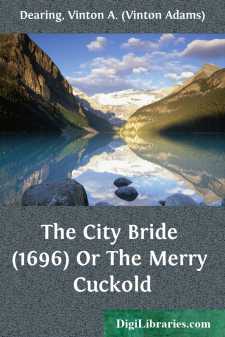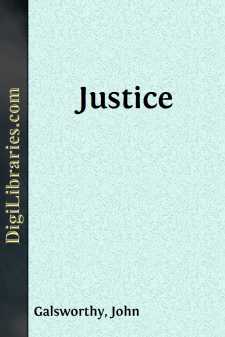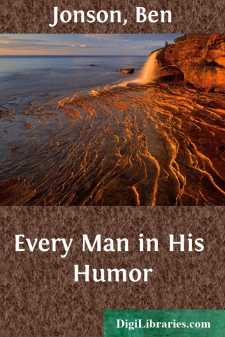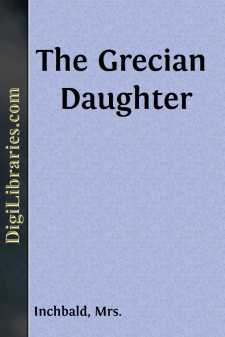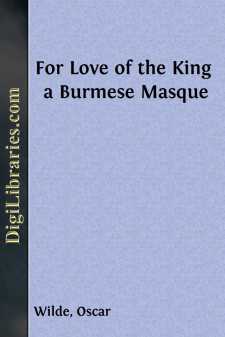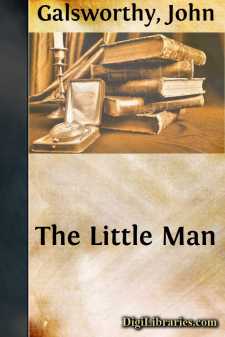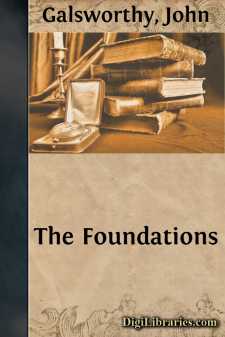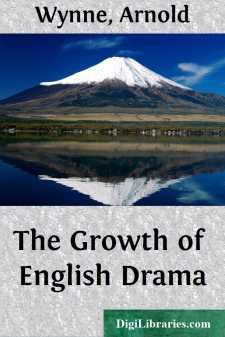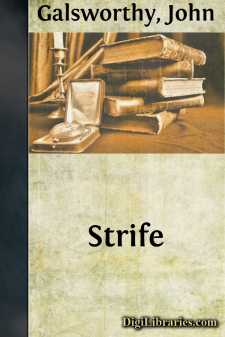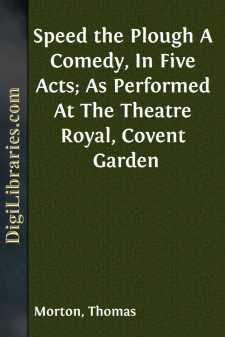Drama
- American 43
- Ancient, Classical & Medieval 45
- Asian 7
- Caribbean & Latin American 2
- Continental European 50
- English, Irish, Scottish, Welsh
- General 105
- Middle Eastern 1
- Religious & Liturgical 1
- Shakespeare 1
English, Irish, Scottish, Welsh Books
Sort by:
INTRODUCTION The City Bride, by Joseph Harris, is of special interest as the only adaptation from the canon of John Webster to have come upon the stage in the Restoration. Nahum Tate’s Injur’d Love: or, The Cruel Husband is an adaptation of The White Devil, but it was never acted and was not printed until 1707. The City Bride is taken from A Cure for a Cuckold, in which William Rowley and perhaps...
more...
by:
John Galsworthy
ACT I The scene is the managing clerk's room, at the offices of Jamesand Walter How, on a July morning. The room is old fashioned,furnished with well-worn mahogany and leather, and lined withtin boxes and estate plans. It has three doors. Two of themare close together in the centre of a wall. One of these twodoors leads to the outer office, which is only divided from themanaging clerk's room...
more...
by:
Ben Jonson
INTRODUCTION THE greatest of English dramatists except Shakespeare, the first literary dictator and poet-laureate, a writer of verse, prose, satire, and criticism who most potently of all the men of his time affected the subsequent course of English letters: such was Ben Jonson, and as such his strong personality assumes an interest to us almost unparalleled, at least in his age. Ben Jonson came of the...
more...
by:
Mrs. Inchbald
REMARKS. This tragedy has been so rapturously applauded on the stage, and so severely criticised in the closet, that it is a task of peculiar difficulty to speak either of its beauties or its defects, with any degree of certainty. To conciliate both the auditor and the reader, both the favourable and the unfavourable critic, the "Grecian Daughter" demands a set of Remarks for each side of the...
more...
by:
Oscar Wilde
ACT I SCENE I The palace of the king of burmah. The scene is laid in the Hall of a Hundred Doors. In the distance can be seen the moat, the waiting elephants, and the peacocks promenading proudly in the blinding sunshine of late afternoon. The scene discovers king meng beng seated on a raised cushion sewn with rubies, under a canopy supported by four attendants, motionless as bronze figures. By...
more...
by:
John Galsworthy
SCENE I Afternoon, on the departure platform of an Austrian railwaystation. At several little tables outside the buffet personsare taking refreshment, served by a pale young waiter. On aseat against the wall of the buffet a woman of lowly station issitting beside two large bundles, on one of which she has placedher baby, swathed in a black shawl. WAITER. [Approaching a table whereat sit an English...
more...
by:
John Galsworthy
ACT I LORD WILLIAM DROMONDY'S mansion in Park Lane. Eight o'clock of the evening. LITTLE ANNE DROMONDY and the large footman, JAMES, gaunt and grin, discovered in the wine cellar, by light of gas. JAMES, in plush breeches, is selecting wine. L. ANNE: James, are you really James? JAMES. No, my proper name's John. L. ANNE. Oh! [A pause] And is Charles's an improper name too? JAMES....
more...
by:
Arnold Wynne
CHAPTER I EARLY CHURCH DRAMA ON THE CONTINENT The old Classical Drama of Greece and Rome died, surfeited with horror and uncleanness. Centuries rolled by, and then, when the Old Drama was no more remembered save by the scholarly few, there was born into the world the New Drama. By a curious circumstance its nurse was the same Christian Church that had thrust its predecessor into the grave. A man may...
more...
by:
John Galsworthy
ACT I It is noon. In the Underwoods' dining-room a bright fire isburning. On one side of the fireplace are double-doors leadingto the drawing-room, on the other side a door leading to thehall. In the centre of the room a long dining-table without acloth is set out as a Board table. At the head of it, in theChairman's seat, sits JOHN ANTHONY, an old man, big,clean-shaven, and high-coloured,...
more...
by:
Thomas Morton
This comedy excites that sensation, which is the best security for the success of a drama—curiosity. After the two first acts are over, and pleasantly over, with the excellent drawn characters of Ashfield and his wife, and the very just satire which arises from Sir Abel's propensity to modern improvements—the acts that follow excite deep interest and ardent expectation; both of which are so...
more...


